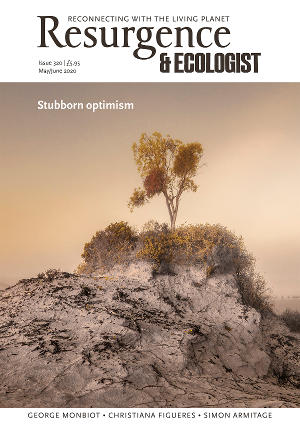The commons are as old as human society itself, and commons are seeing something of a renaissance as people realise the potential of small-scale experiments in commoning, such as community gardens, permaculture and cohousing. Based on a wide range of examples, David Bollier and Silke Helfrich endeavour to outline a “theory of the commons”. Most previous books on this subject have relied on the work of Elinor Ostrom, who spent her career thinking through how to strengthen and improve the commons. While Bollier and Helfrich don’t criticise her work, they take a different path.
Ostrom outlined the commons from the outside. Her famous eight design principles considered how best to manage natural systems for the common good. This book, instead, pays attention to the inner life of the commons. How do systems of togetherness function in the liminal, in-between spaces between people, between people and things, and even within the self? Free, Fair and Alive is packed with ideas and examples that give life to the commons: how to “ritualize togetherness”, “cultivate shared purpose and values”, and “deepen communion with nature”.
The book starts with the claim that humans have a natural, essential need and yearning for cooperation, counteracting mainstream assumptions that we are inherently competitive. The authors focus on the commons not as natural resource governance but as “social systems for meeting shared needs”, with clear and detailed examples of how this plays out. Some of these are already well documented, such as community gardens, subsistence farming, agro-ecology and local and regional currencies; but others are systems I didn’t expect, like the cooperative wifi network in Catalonia that has proved to be cheaper, more effective and more efficient than that provided by large corporations.
Because of their desire to delve into the inner workings of the commons, Bollier and Helfrich introduce new words and terms to describe this emerging world. Neologisms, portmanteaus and jargon can be off-putting, and can confuse matters. Here, though, there are good reasons for these new words. As the authors explain, they are seeking to go beyond current mainstream assumptions like growth, individualism, and human separation from and mastery over Nature. They are heavily critical of the ways these ideas seep not only into our social systems and ways of being, but also into our language, affecting what we think is possible. Helpfully, Free, Fair and Alive has a glossary, so readers can remind themselves of the meaning of any potentially confusing term, such as ‘cosmo-local’. One of these new terms is ‘ontoshift’, meaning “a shift in ontological perspective”. Many of the claims made in this book require an ontoshift: that only the commons can fulfil human flourishing; that being ‘in commons’ is fundamental to being human.
In synthesising a wide array of complex literature, this book is a neat, accessible introduction to the commons, why they matter and why now is the time to learn how to build commons into our everyday lives. Often surprising, it is a solid intellectual resource for anyone participating in the shared experience of the commons or looking to foster and develop collective experiments in their own life.






